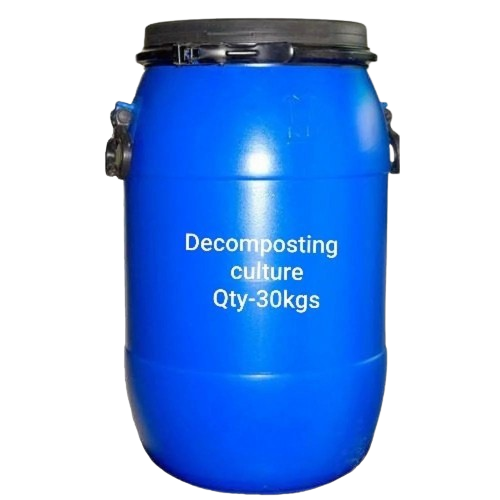Decompost Culture
Home » Decompost Culture
Gem Chemicals
Decompost Culture

Decompost Culture
Decomposition culture refers to the use of microbial cultures to break down organic matter into simpler compounds. This process is widely utilized in various industries for waste management, soil enrichment, and bio-remediation.
Decomposition cultures are typically developed using a mix of bacteria, fungi, and other microorganisms that can efficiently decompose organic materials under controlled conditions.
Applications
Waste Management:
- Composting: Used to convert organic waste into compost, a valuable soil amendment.
- Biogas Production: Facilitates the anaerobic digestion of organic matter to produce biogas, a renewable energy source.
Agriculture:
- Soil Enrichment: Enhances soil fertility by breaking down organic matter into nutrients that plants can readily absorb.
- Plant Residue Decomposition: Helps in the decomposition of crop residues, reducing the need for chemical fertilizers.
Bio-remediation:
- Pollutant Degradation: Employs microbial cultures to degrade environmental pollutants, including oil spills and industrial waste.
- Heavy Metal Reduction: Utilized to reduce the toxicity of heavy metals in contaminated soils and water bodies.
Textile Industry:
- Bio-scouring: Uses enzymes from microbial cultures to remove impurities from natural fibers, improving fabric quality.
- Effluent Treatment: Decomposes organic pollutants in textile wastewater, making it safer for discharge or reuse.
Paper Industry:
- Pulping Process: Microbial cultures can be used in the pulping process to break down lignin, reducing the need for harsh chemicals.
- Waste Treatment: Helps in the treatment of paper mill effluents, reducing environmental impact.
Handling and Safety
- Microbial Exposure: While generally safe, some decomposition cultures may cause allergic reactions or infections in immunocompromised individuals.
- Proper Ventilation: Decomposition processes can produce gases such as methane and carbon dioxide, requiring well-ventilated environments.
- Storage Conditions: Cultures should be stored at appropriate temperatures to maintain their viability and effectiveness.
By utilizing decomposition cultures, industries can achieve sustainable waste management, enhance soil health, and reduce environmental pollution through natural, biological processes.




